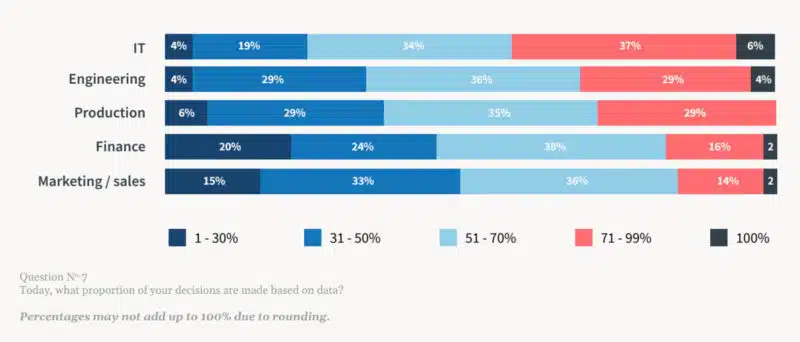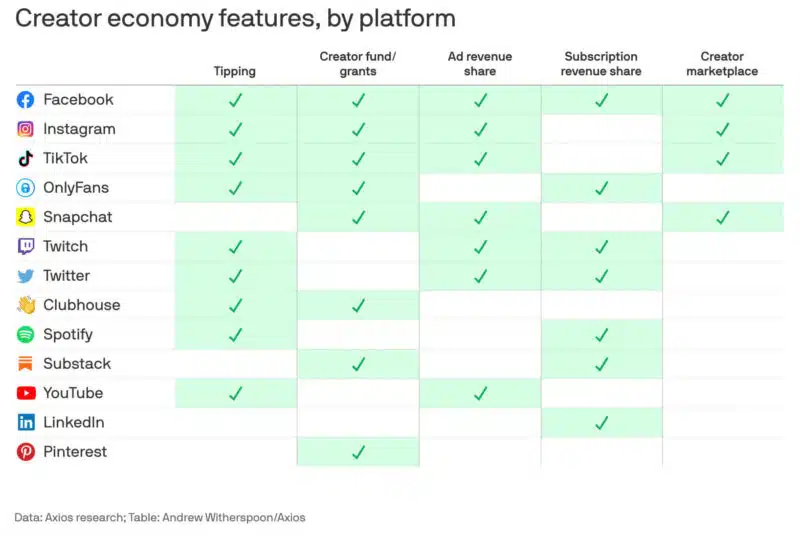A Schema.org replacement for Google’s phased-out Structured Data Testing Tool; Thursday’s daily brief
Plus, most marketing execs don’t make data-driven decisions
Search Engine Land’s daily brief features daily insights, news, tips, and essential bits of wisdom for today’s search marketer. If you would like to read this before the rest of the internet does, sign up here to get it delivered to your inbox daily.
Good morning, Marketers, and let’s talk about expanding your search marketing business,
Hiring is hard. Whether you’re hiring your first employee or your 500th employee, hiring is one thing that doesn’t ever get easier. There are so many facets to setting up new employees for success and to running a business that you don’t have to think about until it’s time to expand.
Plus, it can be expensive. You’ll need an internal or external hiring person and, if not, you’ll have to pay for job boards or position postings to garner applicants. And turnover can be expensive if the hire isn’t a good match.
This is why it’s critical to hire the right person for the job. They need top PPC, SEO, social media, or account management skills, but they’ll also need the soft skills when things change. If you’re expanding your search marketing department soon, check out the list of questions in What We’re Reading to ask to understand these soft skills and make the right hire.
Carolyn Lyden,
Director of Search Content
Schema.org launches its structured data testing tool
Schema.org, as promised, has launched its replacement for Google’s phased-out Structured Data Testing Tool. The organization is calling it the Schema Markup Validator and is available at validator.schema.org.
This should be used for general purpose structured data debugging and validation. You can and should continue to use Google’s Rich Results Testing Tool to test and debug how your structured data will appear and validate for Google and Google Search purposes. The tool is in beta but it’s open to play with it today.
Despite working with data daily, 36% of execs still go with their gut

Marketers like to think that what they do is data-driven, but new information from Talend indicates that maybe leadership isn’t always on the same page. In fact, of all departments in the survey, marketing had the largest proportion of executive decisions made NOT based on data: 48% of those surveyed said they use data for half (or fewer) of their big decisions.
“Executives rely less on data than we would have expected, which is surprising. We see this as a more significant trend of executives not trusting their data which leads them to use instinct in making business decisions. As a matter of fact, 36% of executives from a recent Talend data health survey stated they are going with their gut. They might as well ask the old-fashioned magic eight ball,” said Talend CMO Lauren Vaccarello.
Writing a compelling session or webinar description
Whether you’re speaking at an event or are producing a webinar for leads, your goal is to attract as many people as possible. Making sure your presentation description is actionable, benefit-oriented and clear is the first step in the success of the presentation.
Before you can write a compelling presentation description, take a step back and determine what your objectives are in terms of what you want attendees to get out of your presentation. Don’t forget that adult learners want their information to be relevant to their jobs and focus on solving a problem.
Now that you have your learning objectives in mind, let’s talk about your presentation title. It should be clear, concise, and benefit-oriented. I’ve seen people choose sessions and webinars to attend based on the presentation title alone. Cute titles for presentations can grab the attention of potential viewers, but without the benefit clearly stated they may not ultimately register.
Next, you’ll want to add a few sentences about the presentation. Again, focus on why it’s an important topic and what attendees will get out of it.
Lastly, clearly state what attendees will be able to do as a result of attending your session. If they are going to invest 30 or 45 minutes of their limited time into this presentation it’s only fair that they know what they’ll get out of it. This goes beyond what you’re going to tell them. You need to list out what they will be able to do differently that will change the way they work for the better. Use actionable verbs like implement, execute, and analyze. Check out a sample description on our speaker best practices page.
If you have other ideas or tips on writing presentation descriptions I’d love to hear them. You can always reach out to me at [email protected].
Tech giants have all become creator companies

“Amid the creator economy boom, most platforms have begun to launch features to help creators make money, including tipping features, grants and creator funds or revenue share programs,” wrote Sara Fischer for Axios.
Why we care. Whether your ad strategy includes working with influencers or not, the move toward social media and tech companies opening up monetization options for creators is ubiquitous. Platforms used to differentiate themselves by their features and target audiences. While varied audiences still flock to each site, the leading differentiator now is the platform’s “values” and what types of content creators exist there. It’s important to ask what social media platforms best align with your brand’s values.
Google I/O, ecommerce PPC, and when your Facebook ads are trash
Google I/O kicks off next week and it is open to all, remotely, online. The program includes an AMA about the privacy sandbox, preparing for page experience ranking, and what’s new in search.
How to supercharge your ecommerce PPC campaigns. Check out this video on how to use predictive analytics to increase sales, optimize your feed for Smart Shopping success, and structure campaigns for maximum profitability.
“When your FB ad results have been trash for days, and you’re like…k, we’ll just totally redo it all, then.” Can you relate? Let Susan know.
What We’re Reading: 30 behavioral interview questions to identify high-potential candidates
LinkedIn surveyed almost 1300 hiring managers about the soft-skill questions they ask in interviews to determine the best candidates for their positions while reducing bias in the process.
“The soft skills that matter most vary among roles and companies, but there’s often overlap. To find out which skills are most consistent in high potential candidates and successful hires, we asked hiring managers what they typically look for,” said the report.
The top 6 “soft skills” that employers look for include the following, plus here’s one question (of many) for each that LinkedIn’s ebook recommends asking job candidates:
- Adaptability: Describe a situation in which you embraced a new system, process, technology, or idea at work that was a major departure from the old way of doing things.
- Culture add: Tell me about a time in the last week when you’ve been satisfied, energized, and productive at work. What were you doing?
- Collaboration: Describe the best partner or supervisor you’ve worked with. What part of their management style appealed to you?
- Leadership: Tell me about the toughest decision you had to make in the last six months.
- Growth potential: What would motivate you to make a move from your current role?
- Prioritization: Tell me about a project that you planned. How did you organize and schedule the tasks?
Whether you’re hiring an SEO, an account manager, a PPC specialist, or a CMO in your organization, soft skills are often the hardest to teach. Ensuring that you’re looking for them before the hire means you can teach the technical skills and rely on the soft skills to help your new employee succeed
Opinions expressed in this article are those of the guest author and not necessarily Search Engine Land. Staff authors are listed here.
Related stories